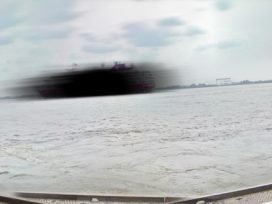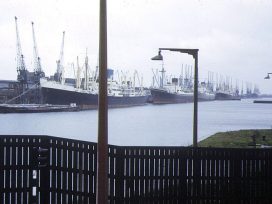86 articles

Gateways to the world or fortress Europe? Attached to harbour cities are all sorts of often contradictory metaphors that appear both to encourage movement and to restrict it. Local, national and global processes impose their mark on the development and self-understanding of this particular urban space. Rightly associated with informality, cosmopolitanism and adventure, European harbour cities also bear the traces of a darker past: of colonialism, slavery and penal regimes. In the twenty-first century, maritime memories are recycled for heritage as de-populated mega-ports arise in zones disconnected from harbour cities themselves. Made redundant by containerization, communities formerly dependent on port economies are replaced by a tertiary sector seeking the prestige and space of waterside locations. At the same time, harbours and their environs remain peripheral zones attracting those seeking out the shadows of surveillance society.
In advance of the Eurozine conference 2012 in Hamburg, entitled Arrivals/Departures: European harbour cities as places of migration, articles explored how European societies deal variously with the cultural legacy of the “harbour city”.
Read the conference report here.


London’s relationship to water and to the sea remains central to its role in the global economy and vital to a gamble in which the Olympics is a part, argues Anthony Iles. On the connections between shipping, logistics and the hi-speed, only apparently immaterial world of finance.



